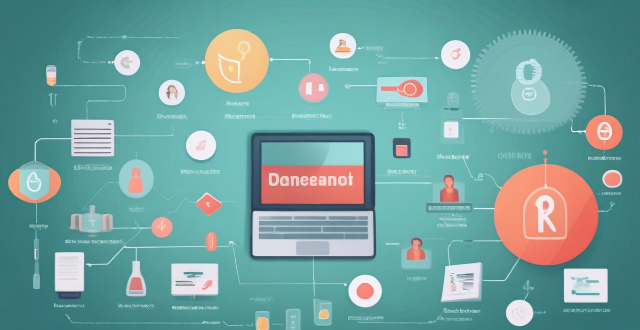Blockchain technology has the potential to revolutionize the healthcare sector by addressing key challenges such as data privacy, security, interoperability, and efficiency. Key features of blockchain include decentralization, transparency, immutability, and security. Applications of blockchain in healthcare include electronic health records management, drug supply chain management, clinical trials and research, health insurance claims processing, and telemedicine and remote monitoring. As more healthcare organizations adopt blockchain, we can expect significant improvements in patient care, research, and overall healthcare delivery.

Blockchain Technology in Healthcare: A Revolutionary Approach
Introduction
Blockchain technology, known for its secure and decentralized nature, has the potential to revolutionize various sectors, including healthcare. By providing a transparent, tamper-proof, and efficient way of storing and sharing data, blockchain can address many challenges faced by the healthcare industry. In this article, we will explore how blockchain technology can transform the healthcare sector.
Key Features of Blockchain Technology
Before diving into the applications of blockchain in healthcare, let's first understand its key features:
- Decentralization: Data is stored across multiple nodes, eliminating the need for a central authority.
- Transparency: All transactions are visible to participants, ensuring accountability and trust.
- Immutability: Once data is added to the blockchain, it cannot be altered or deleted.
- Security: Data is encrypted and protected using advanced cryptographic techniques.
Applications of Blockchain in Healthcare
1. Electronic Health Records (EHR) Management
Blockchain technology can be used to create a secure and interoperable system for managing EHRs. With blockchain, patients can have control over their own medical data, allowing them to share it with healthcare providers as needed. This ensures data privacy and reduces the risk of data breaches.
- Decentralized storage of EHRs
- Patient-controlled access to medical data
- Improved data privacy and security
2. Drug Supply Chain Management
Blockchain can help ensure the authenticity and integrity of drugs throughout the supply chain. By tracking drugs from manufacturers to pharmacies, blockchain can prevent counterfeit drugs from entering the market and improve patient safety.
- End-to-end tracking of drugs
- Verification of drug authenticity and quality
- Reduction in counterfeit drugs
3. Clinical Trials and Research
Blockchain can streamline clinical trials by providing a secure platform for collecting and sharing research data. This can lead to faster trial completion times, reduced costs, and improved patient outcomes.
- Secure and transparent data collection
- Faster trial completion times
- Reduced costs and improved patient outcomes
4. Health Insurance Claims Processing
Blockchain can automate insurance claims processing, reducing administrative overhead and improving efficiency. Smart contracts can be used to automatically verify claims and trigger payments, reducing fraud and errors.
- Automated claims processing
- Reduced administrative overhead
- Improved efficiency and reduced fraud
5. Telemedicine and Remote Monitoring
Blockchain can enable secure and efficient telemedicine services by providing a platform for storing and sharing patient data. This can improve access to healthcare services, especially in remote areas.
- Secure telemedicine services
- Improved access to healthcare services
- Efficient remote monitoring of patients
Conclusion
Blockchain technology has the potential to revolutionize the healthcare sector by addressing key challenges such as data privacy, security, interoperability, and efficiency. As more healthcare organizations adopt blockchain, we can expect significant improvements in patient care, research, and overall healthcare delivery.